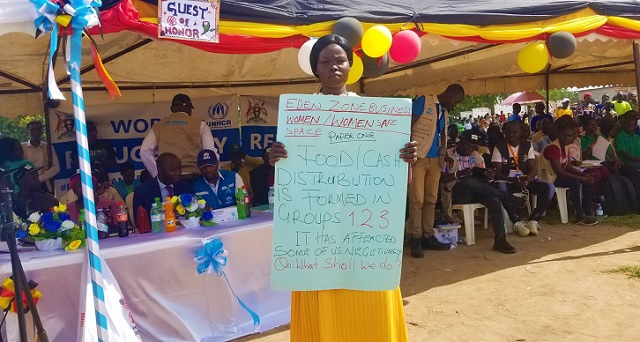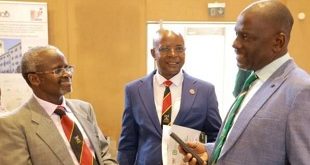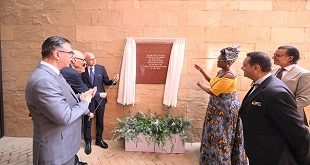
Madi Okollo, Uganda | THE INDEPENDENT | The Office of the Prime Minister and the Japan International Cooperation (JICA), have partnered to establish mass rice production in Rhino Camp Refugee Settlement, Madi Okollo district.
The move comes as the United Nations World Food Programme (WFP) moves to prioritize food assistance for the most vulnerable refugees in Uganda, effective next month.
Under the proposed project, Rhino Camp Refugee Settlement is expected to offer 10,000 acres of land for mass rice production under a mechanization approach. Part of the land will be used to set up rice-hauling machines and stores.
Armitage Basikania, the Settlement Commandant for Rhino Camp explains that they have already developed a Memorandum of Understanding (MOU) to be signed by the host community landlords such that the required acreage of land can be secured before the project kicks off.
According to Basikania, amidst the looming reduction in food and financial support for refugees, there is a need for intensive means of survival through livelihood.
Paul Kenya, the head of the United Nations High Commission for Refugees (UNHCR) Arua sub-office says that amidst dwindling donor support towards refugee response, they will continue to advocate for more donor support to support the refugees.
Jena Toma, the Deputy Refugee Desk officer at the Office of the Prime Minister- OPM Arua asked the international donor community to continue supporting the refugee responses in Uganda.
Emmanuel Lokule, a South Sudanese refugee at Eden Zone in the Rhino camp refugee settlement has welcomed the proposed rice production but hastened to add that there is a need for a large irrigation facility to address the poor rainfall pattern in the settlement.
According to Joseph Lagu Michael, a refugee, there is a need for the host community members to be involved in the proposed rice farming once the project is rolled out.
“If you look at some of the host community members here in Rhino camp, they’re more vulnerable than us. They need to be included in the project”, Lagu said.
In January, the United Nations World Food Programme (WFP) announced that they will prioritize food assistance for the most vulnerable refugees in Uganda as needs outstrip resources. Under the new food distribution assistance, refugees have been categorized into three different levels depending on their vulnerability.
According to the WFP guidelines, Refugees under Level I are expected to receive 3.7 kilograms of food ration or 28,000 Shillings every month, those in Level II will receive 14,000 Shillings and those in Level III will not receive any assistance come next month.
Rhino Camp Refugee Settlement covers a total area of 90 square miles and is home to about 145,000 refugees, the majority of whom are South Sudanese and Congolese nationals.
*****
URN
 The Independent Uganda: You get the Truth we Pay the Price
The Independent Uganda: You get the Truth we Pay the Price


